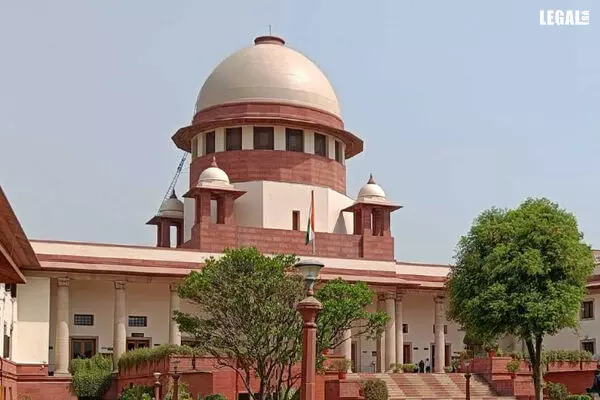- Home
- News
- Articles+
- Aerospace
- Artificial Intelligence
- Agriculture
- Alternate Dispute Resolution
- Arbitration & Mediation
- Banking and Finance
- Bankruptcy
- Book Review
- Bribery & Corruption
- Commercial Litigation
- Competition Law
- Conference Reports
- Consumer Products
- Contract
- Corporate Governance
- Corporate Law
- Covid-19
- Cryptocurrency
- Cybersecurity
- Data Protection
- Defence
- Digital Economy
- E-commerce
- Employment Law
- Energy and Natural Resources
- Entertainment and Sports Law
- Environmental Law
- Environmental, Social, and Governance
- Foreign Direct Investment
- Food and Beverage
- Gaming
- Health Care
- IBC Diaries
- In Focus
- Inclusion & Diversity
- Insurance Law
- Intellectual Property
- International Law
- IP & Tech Era
- Know the Law
- Labour Laws
- Law & Policy and Regulation
- Litigation
- Litigation Funding
- Manufacturing
- Mergers & Acquisitions
- NFTs
- Privacy
- Private Equity
- Project Finance
- Real Estate
- Risk and Compliance
- Student Corner
- Take On Board
- Tax
- Technology Media and Telecom
- Tributes
- Viewpoint
- Zoom In
- Law Firms
- In-House
- Rankings
- E-Magazine
- Legal Era TV
- Events
- Middle East
- Africa
- News
- Articles
- Aerospace
- Artificial Intelligence
- Agriculture
- Alternate Dispute Resolution
- Arbitration & Mediation
- Banking and Finance
- Bankruptcy
- Book Review
- Bribery & Corruption
- Commercial Litigation
- Competition Law
- Conference Reports
- Consumer Products
- Contract
- Corporate Governance
- Corporate Law
- Covid-19
- Cryptocurrency
- Cybersecurity
- Data Protection
- Defence
- Digital Economy
- E-commerce
- Employment Law
- Energy and Natural Resources
- Entertainment and Sports Law
- Environmental Law
- Environmental, Social, and Governance
- Foreign Direct Investment
- Food and Beverage
- Gaming
- Health Care
- IBC Diaries
- In Focus
- Inclusion & Diversity
- Insurance Law
- Intellectual Property
- International Law
- IP & Tech Era
- Know the Law
- Labour Laws
- Law & Policy and Regulation
- Litigation
- Litigation Funding
- Manufacturing
- Mergers & Acquisitions
- NFTs
- Privacy
- Private Equity
- Project Finance
- Real Estate
- Risk and Compliance
- Student Corner
- Take On Board
- Tax
- Technology Media and Telecom
- Tributes
- Viewpoint
- Zoom In
- Law Firms
- In-House
- Rankings
- E-Magazine
- Legal Era TV
- Events
- Middle East
- Africa
Supreme Court: Unless beneficial to employee, settlement between union & employer won’t override MSO

Supreme Court: Unless beneficial to employee, settlement between union & employer won’t override MSO
Allowing the appeal, the bench set aside the Bombay High Court judgment and award
The Supreme Court has observed that any settlement between the employee union and the employer would not override the Model Standing Order (MSO) unless it is more beneficial to the employees.
The Bench of Justice Abhay S. Oka and Justice Sanjay Karol observed that the employer and the workman could not enter a contract overriding the statutory contract embodied in the certified standing orders.
Earlier, the Bombay High Court had confirmed the award passed by the Central Government Industrial Tribunal (CGIT). It rejected the union’s demand for reinstatement with full back wages.
The issues raised before the apex court were:
(1) Under the Industrial Employment (Standing Orders) Act, 1946, which authority is empowered to issue the standing orders?
(2) Whether a private agreement/settlement between the parties would override the standing order?
On the first point, the apex court observed that the Bombay MSO would be applicable to the parties. On the second point, the court referred its earlier rulings.
The Judges held, “The certified Standing Orders have a statutory force. It implies a contract between the employer and the workman. Therefore, the employer and the workman cannot enter a contract overriding the statutory contract embodied in the certified standing orders.”
The Bench noted that the High Court held that the MSO was not a statutory provision but a statutorily imposed condition of service that a settlement or award could alter.
Referring to the relevant clauses of the Bombay MSO, the court stated, “A cumulative reading of the clauses reveals that a workman who has worked for 240 days in an establishment is entitled to be made permanent, and no contract/settlement, which abridges such a right can be agreed upon, let alone be binding. The Act being the beneficial legislation provides that any agreement/contract/settlement wherein the rights of the employees are waived off, would not override the standing orders.”
Thus, allowing the appeal, the bench set aside the judgment and the award by the High Court.



